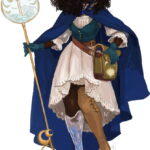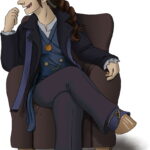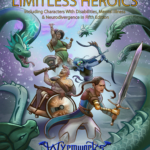Muscle Control & Gait Difference
You walk with a noticeable limp due to inability to control your leg muscles with precision. Your movement speed is reduced by 20 percent × (IE), and you have a −(IE) penalty on all Dexterity (Acrobatics) checks and Strength (Athletics) checks involving legs.
Real-world Examples
Multiple Sclerosis, Ménière’s Disease, Parkinson’s Disease, Chiari malformation (CM), Guillain-Barré Syndrome, Cerebral Palsy, Muscular Dystrophy
Assistive Options
Leg braces, crutches, walkers, rollators, and canes can reduce the movement penalty by 1 IE, but braces take 1 minute to put on and cannot be worn while sleeping, and the others, unless designed for use as weapons, require one hand to be used for balance. Wheelchairs eliminate the movement penalty and add fifty percent to your dash movement unless on rough terrain, but many actions such as jumping are impossible while sitting in a typical wheelchair.


